- Home
- D. H. Lawrence
Life with a Capital L Page 17
Life with a Capital L Read online
Page 17
‘Last July, the Police, according to our law, advised him that he was either to find a surety or to deposit a sum of money with them as otherwise at the expiration of his three months’ stay he would be compelled to leave the place. Money he had none, so he asked Mazzaiba to stand as surety. Mazzaiba could not as he was already guarantor for his alien cousins who were here at the time. Mazzaiba (not M—) asked me and I complied, thinking that the responsibility was just moral and only exacted as a matter of form.
‘When, as stated before, Mazzaiba told me that M— owed him £55 and that he owed his grocer and others at Notabile (the old town, of which Rabato is the suburb) over £10, I thought I might as well look up my guarantee and see if I was directly responsible for any debts he incurred here. The words of his declaration which I endorsed stated that “I hereby solemnly promise that I will not be a burden to the inhabitants of these islands, etc.,” and deeming that unpaid debts to be more or less a burden, I decided to withdraw my guarantee, which I did on the 23rd ult. The reason I gave to the police was that he was outliving his income and that I did not intend to shoulder any financial responsibility in the matter. On the same day I wrote to him up at Notabile saying that for family reasons I was compelled to withdraw his surety. He took my letter in the sense implied and no way offended at my procedure.
‘M—, in his resourceful way, knowing that he would with great difficulty find another guarantor, wrote at once to the police saying that he understood from Mr Salonia that he (S) had withdrawn his guarantee, but as he (M) would be leaving the island in about three weeks’ time (still intending to exploit Morocco) he begged the Commissioner to allow him this period of grace, without demanding a new surety. In fact he asked me to find him a cheap passage to Gib. in an ingoing tramp steamer. The police did not reply to his letter at all, no doubt they had everything ready and well thought out. He was alarmed in not receiving an acknowledgment, and, knowing full well what he imminently expected at the hands of the Italian police, he decided to prepare for the last act of his drama.
‘We had not seen him for three or four days when he came to Mazzaiba’s office on Wednesday, 3rd inst., in the forenoon. He stayed there for some time talking on general subjects and looking somewhat more excited than usual. He went up to town alone at noon as Mazzaiba went to Singlea. I was not with them in the morning, but in the afternoon about 4.30, whilst I was talking to Mazzaiba in his office, M— again came in looking very excited, and, being closing time, we went up, the three of us, to town, and there left him in the company of a friend.
‘On Thursday morning, 4th inst., at about 10 a.m., two detectives in plain clothes met him in a street at Notabile. One of them quite casually went up to him and said very civilly that the inspector of police wished to see him re a guarantee or something, and that he was to go with him to the police station. This was an excuse as the detective had about him a warrant for his arrest for frauding an hotel in Rome, and that he was to be extradited at the request of the authorities in Italy. M— replied that as he was in his sandals he would dress up and go with them immediately, and, accompanying him to his house at No. 1 Strada S. Pietro, they allowed him to enter. He locked the door behind him, leaving them outside.
‘A few minutes later he opened his bedroom window and dropped a letter addressed to Don Bernardo which he asked a boy in the street to post for him, and immediately closed the window again. One of the detectives picked up the letter and we do not know to this day if same was posted at all. Some time elapsed and he did not come out. The detectives were by this time very uneasy and as another police official came up they decided to burst open the door. As the door did not give way they got a ladder and climbed over the roof, and there they found M— in his bedroom dying from poisoning, outstretched on his bed and a glass of water close by. A priest was immediately called in who had just time to administer Extreme Unction before he died at 11.45 a.m.
‘At 8.0 a.m. the next day his body was admitted for examination at the Floriana Civil Hospital and death was certified to be from poisoning with hydrocyanic acid. His age was given as 44, being buried on his birthday (7th Novr.), with R. Catholic Rites at the expense of His Friends in Malta.
‘Addenda: Contents of Don Bernardo’s letter: –
‘ “I leave it to you and to Gabriel Mazzaiba to arrange my affairs. I cannot live any longer. Pray for me.”
‘Document found on his writing-table:
‘ “In case of my unexpected death inform American consul.
‘ “I want to be buried first class, my wife will pay.
‘ “My little personal belongings to be delivered to my wife. (Address.)
‘ “My best friend here, Gabriel Mazzaiba, inform him. (Address.)
‘ “My literary executor N— D—. (Address.)
‘ “All manuscripts and books for N—D—. I leave my literary property to N— D— to whom half of the results are to accrue. The other half my debts are to be paid with:
‘ “Furniture etc. belong to Coleiro, Floriana.
‘ “Silver spoons etc. belong to Gabriel Mazzaiba. (Address.).”
‘The American Consul is in charge of all his personal belongings. I am sure he will be pleased to give you any further details you may require. By the way, his wife refused to pay his burial expenses, but five of his friends in Malta undertook to give him a decent funeral. His mourners were: The consul, the vice-consul, Mr A., an American citizen, Gabriel Mazzaiba and myself.
‘Please convey to Mrs Lawrence an expression of our sincere esteem and high regard and you will kindly accept equally our warmest respects, whilst soliciting any information you would care to pass on to us regarding the late M—. Believe me, My dear Mr Lawrence, etc.’
[Mrs M— refunded the burial expenses through the American consul about two months after her husband’s death.]
When I had read this letter the world seemed to stand still for me. I knew that in my own soul I had said, ‘Yes, he must die if he cannot find his own way.’ But for all that, now I realized what it must have meant to be the hunted, desperate man: everything seemed to stand still. I could, by giving half my money, have saved his life. I had chosen not to save his life.
Now, after a year has gone by, I keep to my choice. I still would not save his life. I respect him for dying when he was cornered. And for this reason I feel still connected with him: still have this to discharge, to get his book published, and to give him his place, to present him just as he was as far as I knew him myself.
The worst thing I have against him, is that he abused the confidence, the kindness, and the generosity of unsuspecting people like Mazzaiba. He did not want to, perhaps. But he did it. And he leaves Mazzaiba swindled, distressed, confused, and feeling sold in the best part of himself. What next? What is one to feel towards one’s strangers, after having known M—? It is this Judas treachery to ask for sympathy and for generosity, to take it when given – and then: ‘Sorry, but anybody may make a mistake!’ It is this betraying with a kiss which makes me still say: ‘He should have died sooner.’ No, I would not help to keep him alive, not if I had to choose again. I would let him go over into death. He shall and should die, and so should all his sort: and so they will. There are so many kiss-giving Judases. He was not a criminal: he was obviously well intentioned: but a Judas every time, selling the good feeling he had tried to arouse, and had aroused, for any handful of silver he could get. A little loving vampire!
Yesterday arrived the manuscript of the Legion, from Malta. It is exactly two years since I read it first in the monastery. Then I was moved and rather horrified. Now I am chiefly amused; because in my mind’s eye is the figure of M— in the red trousers and the blue coat with lappets turned up, swinging like a little indignant pigeon across the drill yards and into the canteen of Bel-Abbès. He is so indignant, so righteously and morally indignant, and so funny. All the horrors of the actuality fade before the indignation, his little, tuppenny indignation.
Oh, M— is a prime hypocrite
. How loudly he rails against the Boches! How great his enthusiasm for the pure, the spiritual Allied cause. Just so long as he is in Africa, and it suits his purpose! His scorn for the German tendencies of the German legionaries: even Count de R. secretly leans towards Germany. ‘Blood is thicker than water,’ says our hero glibly. Some blood, thank God. Apparently not his own. For according to all showing he was, by blood, pure German: father and mother: even Hohenzollern blood !!! Pure German! Even his speech, his mother-tongue, was German and not English! And then the little mongrel! – !
But perhaps something happens to blood when once it has been taken to America.
And then, once he is in Valbonne, lo, a change! Where now is sacred France and the holy Allied Cause! Where is our hero’s fervour? It is worse than Bel-Abbès! Yes, indeed, far less human, more hideously cold. One is driven by very rage to wonder if he was really a spy, a German spy whom Germany cast off because he was no good.
The little gentleman! God damn his white-blooded gentility. The legionaries must have been gentlemen, that they didn’t kick him every day to the lavatory and back.
‘You are a journalist?’ said the colonel.
‘No, a littérateur,’ said M— perkily.
‘That is something more?’ said the Colonel.
Oh, I would have given a lot to have seen it and heard it. The littérateur! Well, I hope this book will establish his fame as such. I hope the editor, if it gets one, won’t alter any more of the marvellously staggering sentences and the joyful French mistakes. The littérateur! – the impossible little pigeon!
But the Bel-Abbès part is alive and interesting. It should be read only by those who have the stomach. Ugly, foul – alas, it is no uglier and no fouler than the reality. M— himself was near enough to being a scoundrel, thief, forger, etc., etc. – what lovely strings of names he hurls at them! – to be able to appreciate his company. He himself was such a liar, that he was not taken in. But his conceit as a gentleman keeping up appearances gave him a real standpoint from which to see the rest. The book is in its way a real creation. But I would hate it to be published and taken at its face value, with M— as a spiritual dove among vultures of lust. Let us first put a pinch of salt on the tail of this dove. What he did do in the way of vice, even in Bel-Abbès, I never chose to ask him.
Yes, yes, he sings another note when he is planted right among the sacred Allies, with never a German near. Then the gorgeousness goes out of his indignation. He takes it off with the red trousers. Now he is just a sordid little figure in filthy corduroys. There is no vice to purple his indignation, the little holy liar. There is only sordidness and automatic, passionless, colourless awful mud. When all is said and done, mud, cold, hideous, foul, engulfing mud, up to the waist, this is the final symbol of the Great War. Hear some of the horrified young soldiers. They dare hardly speak of it yet.
The Valbonne part is worse, really, than the Bel-Abbès part. Passionless, barren, utterly, coldly foul and hopeless. The ghastly emptiness, and the slow mud-vortex, the brink of it.
Well, now M— has gone himself. Yes, and he would be gone in the common mud and dust himself, if it were not that the blood still beats warm and hurt and kind in some few hearts. M— ‘hinted’ at Mazzaiba for money, in Malta, and Mazzaiba gave it to him, thinking him a man in distress. He thought him a gentleman, and lovable, and in trouble! And Mazzaiba – it isn’t his real name, but there he is, real enough – still has this feeling of grief for M—. So much so that now he has had the remains taken from the public grave in Malta, and buried in his own, the Mazzaiba grave, so that they shall not be lost. For my part, I would have said that the sooner they mingled with the universal dust, the better. But one is glad to see a little genuine kindness and gentleness, even if it is wasted on the bones of that selfish little scamp of a M—. He despised his ‘physical friendships –’ though he didn’t forgo them. So why should anyone rescue his physique from the public grave?
But there you are – there was his power: to arouse affection and a certain tenderness in the hearts of others, for himself. And on this he traded. One sees the trick working all the way through the Legion book. God knows how much warm kindness, generosity, was showered on him during the course of his forty-odd years. And selfish little scamp, he took it as a greedy boy takes cakes off a dish, quickly, to make the most of his opportunity while it lasted. And the cake once eaten: buona sera! He patted his own little paunch and felt virtuous. Merely physical feeling, you see! He had a way of saying ‘physical’ – a sort of American way, as if it were spelt ‘fisacal’ – that made me want to kick him.
Not that he was mean, while he was about it. No, he would give very freely: even a little ostentatiously, always feeling that he was being a liberal gentleman. Ach, the liberality and the gentility he prided himself on! Ecco! And he gave a large tip, with a little winsome smile. But in his heart of hearts it was always himself he was thinking of, while he did it. Playing his rôle of the gentleman who was awfully nice to everybody: so long as they were nice to him, or so long as it served his advantage. Just private charity!
Well, poor devil, he is dead: which is all the better. He had his points, the courage of his own terrors, quick-wittedness, sensitiveness to certain things in his surroundings. I prefer him, scamp as he is, to the ordinary respectable person. He ran his risks: he had to be running risks with the police, apparently. And he poisoned himself rather than fall into their clutches. I like him for that. And I like him for the sharp and quick way he made use of every one of his opportunities to get out of that beastly army. There I admire him: a courageous isolated little devil, facing his risks, and like a good rat, determined not to be trapped. I won’t forgive him for trading on the generosity of others, and so dropping poison into the heart of all warm-blooded faith. But I am glad after all that Mazzaiba has rescued his bones from the public grave. I wouldn’t have done it myself, because I don’t forgive him his ‘fisacal’ impudence and parasitism. But I am glad Mazzaiba has done it. And, for my part, I will put his Legion book before the world if I can. Let him have his place in the world’s consciousness.
Let him have his place, let his word be heard. He went through vile experiences: he looked them in the face, braved them through, and kept his manhood in spite of them. For manhood is a strange quality, to be found in human rats as well as in hot-blooded men. M— carried the human consciousness through circumstances which would have been too much for me. I would have died rather than be so humiliated, I could never have borne it. Other men, I know, went through worse things in the war. But then, horrors, like pain, are their own anæsthetic. Men lose their normal consciousness, and go through in a sort of delirium. The bit of Stendhal which Dos Passos quotes in front of Three Soldiers is frighteningly true. There are certain things which are so bitter, so horrible, that the contemporaries just cannot know them, cannot contemplate them. So it is with a great deal of the late war. It was so foul, and humanity in Europe fell suddenly into such ignominy and inhuman ghastliness, that we shall never fully realize what it was. We just cannot bear it. We haven’t the soul-strength to contemplate it.
And yet, humanity can only finally conquer by realizing. It is human destiny, since Man fell into consciousness and self-consciousness, that we can only go forward step by step through realization, full, bitter, conscious realization. This is true of all the great terrors and agonies and anguishes of life: sex, and war, and even crime. When Flaubert in his story – it is so long since I read it – makes his saint have to kiss the leper, and naked clasp the leprous awful body against his own, that is what we must at last do. It is the great command Know Thyself. We’ve got to know what sex is, let the sentimentalists wiggle as they like. We’ve got to know the greatest and most shattering human passions, let the puritans squeal as they like for screens. And we’ve got to know humanity’s criminal tendency, look straight at humanity’s great deeds of crime against the soul. We have to fold this horrible leper against our naked warmth: because life and the throbb
ing blood and the believing soul are greater even than leprosy. Knowledge, true knowledge is like vaccination. It prevents the continuing of ghastly moral disease.
And so it is with the war. Humanity in Europe fell horribly into a hatred of the living soul, in the war. There is no gainsaying it. We all fell. Let us not try to wriggle out of it. We fell into hideous depravity of hating the human soul; a purulent small-pox of the spirit we had. It was shameful, shameful, shameful, in every country and in all of us. Some tried to resist, and some didn’t. But we were all drowned in shame. A purulent small-pox of the vicious spirit, vicious against the deep soul that pulses in the blood.
We haven’t got over it. The small-pox sores are running yet in the spirit of mankind. And we have got to take this putrid spirit to our bosom. There’s nothing else for it. Take the foul rotten spirit of mankind, full of the running sores of the war, to our bosom, and cleanse it there. Cleanse it not with blind love: ah no, that won’t help. But with bitter and wincing realization. We have to take the disease into our consciousness and let it go through our soul, like some virus. We have got to realize. And then we can surpass.
M— went where I could never go. He carried the human consciousness unbroken through circumstances I could not have borne. It is not heroism to rush on death. It is cowardice to accept a martyrdom today. That is the feeling one has at the end of Dos Passos’ book. To let oneself be absolutely trapped? Never! I prefer M—. He drew himself out of the thing he loathed, despised, and feared. He fought it, for his own spirit and liberty. He fought it open-eyed. He went through. They were more publicly heroic, they won war medals. But the lonely terrified courage of the isolated spirit which grits its teeth and stares the horrors in the face and will not succumb to them, but fights its way through them, knowing that it must surpass them: this is the rarest courage. And this courage M— had: and the man in the Dos Passos book didn’t quite have it. And so, though M— poisoned himself, and I would not wish him not to have poisoned himself: though as far as warm life goes, I don’t forgive him; yet, as far as the eternal and unconquerable spirit of man goes, I am with him through eternity. I am grateful to him, he beat out for me boundaries of human experience which I could not have beaten out for myself. The human traitor he was. But he was not traitor to the spirit. In the great spirit of human consciousness he was a hero, little, quaking and heroic: a strange, quaking little star.

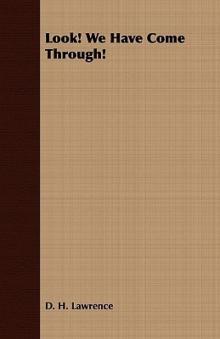 Look! We Have Come Through!
Look! We Have Come Through!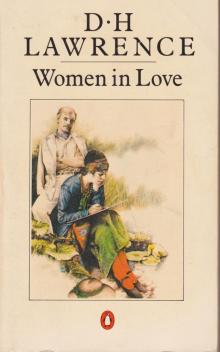 Women in Love
Women in Love The Ladybird
The Ladybird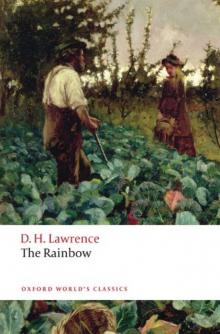 The Rainbow
The Rainbow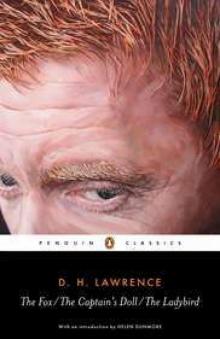 The Captain's Dol
The Captain's Dol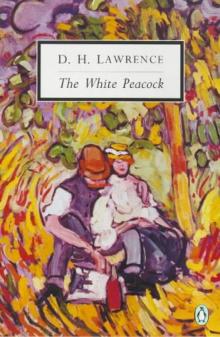 The White Peacock
The White Peacock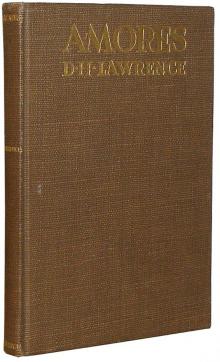 Amores
Amores Lady Chatterley's Lover
Lady Chatterley's Lover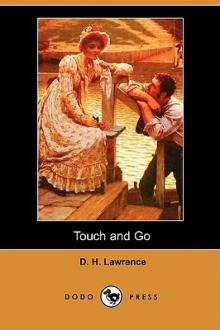 Touch and Go
Touch and Go The Wintry Peacock
The Wintry Peacock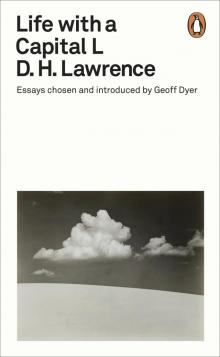 Life with a Capital L
Life with a Capital L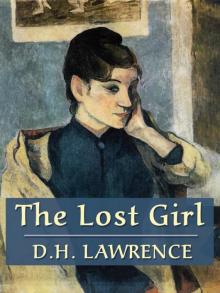 The Lost Girl
The Lost Girl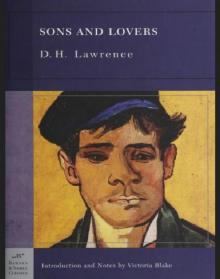 Sons and Lovers
Sons and Lovers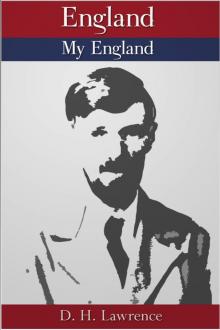 England, My England
England, My England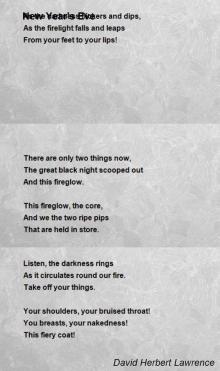 New Poems
New Poems Twilight in Italy
Twilight in Italy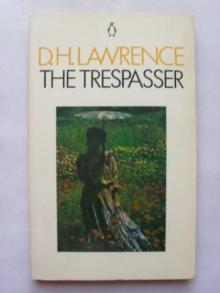 The Trespasser
The Trespasser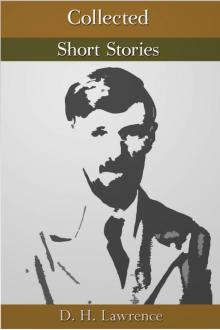 The Collected Short Stories
The Collected Short Stories The First Lady Chatterley's Lover
The First Lady Chatterley's Lover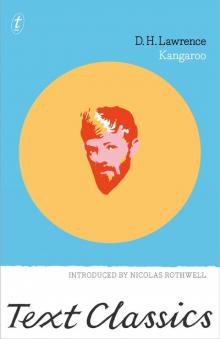 Kangaroo
Kangaroo Bay
Bay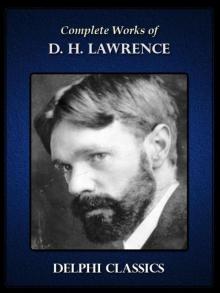 Complete Works of D.H. Lawrence
Complete Works of D.H. Lawrence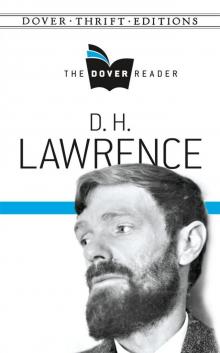 D H Lawrence- The Dover Reader
D H Lawrence- The Dover Reader The Rainbow (100th Anniversary ed.)
The Rainbow (100th Anniversary ed.)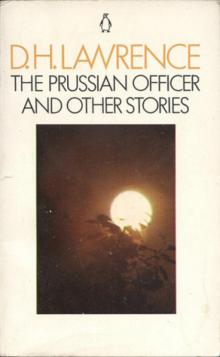 The Prussian Officer
The Prussian Officer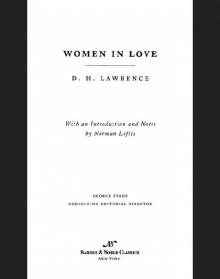 Women in Love (Barnes & Noble Classics Series)
Women in Love (Barnes & Noble Classics Series) John Thomas and Lady Jane
John Thomas and Lady Jane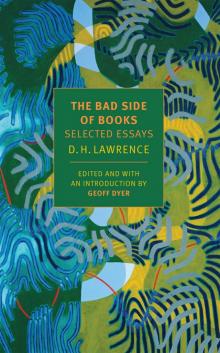 The Bad Side of Books
The Bad Side of Books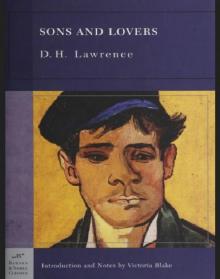 Sons and Lovers (Barnes & Noble Classics Series)
Sons and Lovers (Barnes & Noble Classics Series) Selected Stories
Selected Stories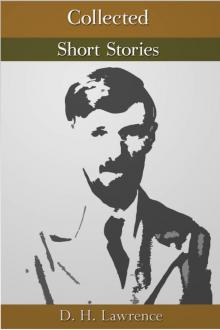 Collected Short Stories
Collected Short Stories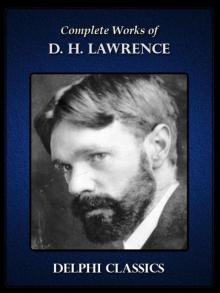 Complete Works of D.H. Lawrence (Illustrated)
Complete Works of D.H. Lawrence (Illustrated)